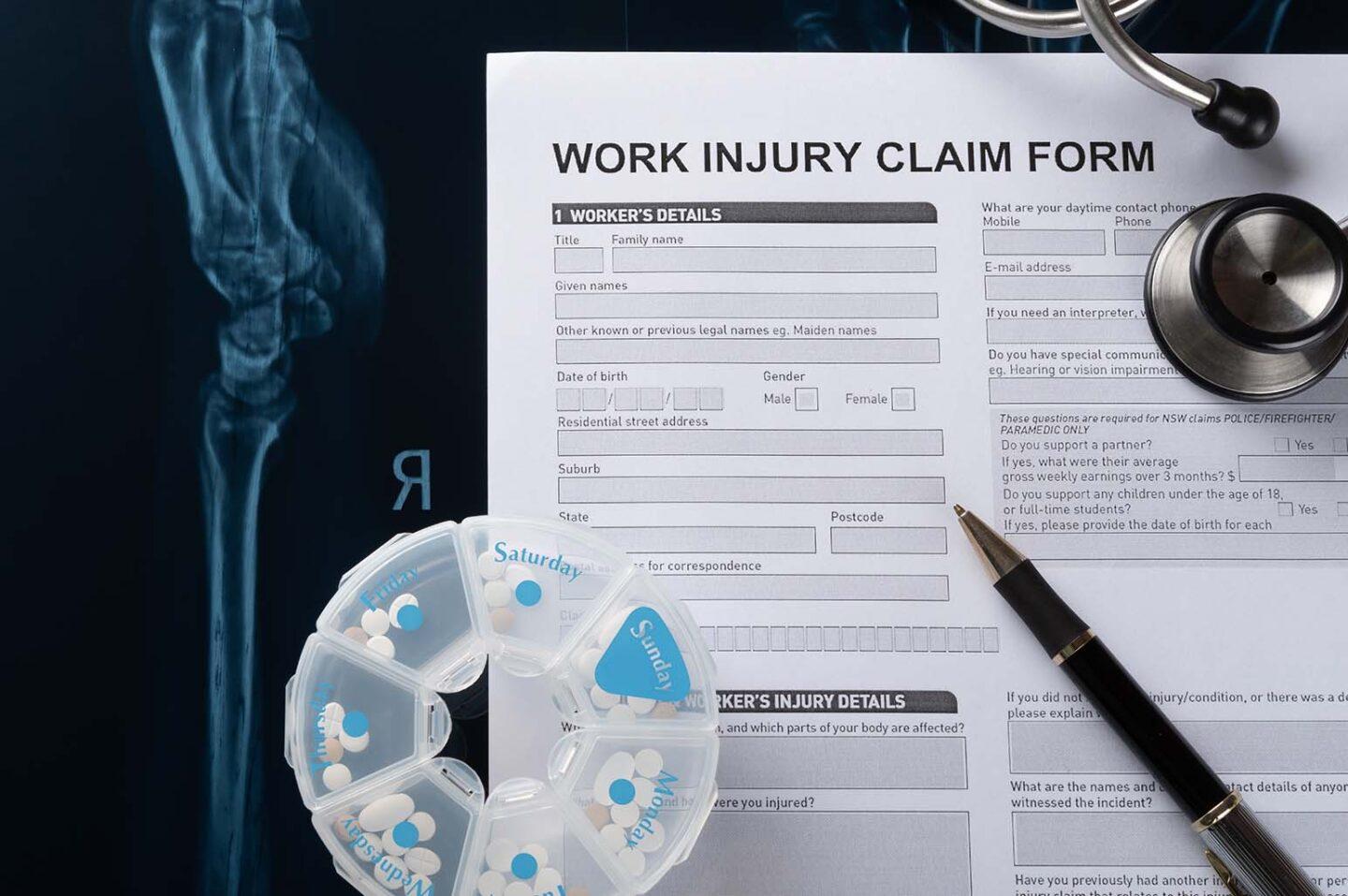Are you injured on the job and unsure of what steps to take? This guide provides information about workers’ compensation, so you can understand your rights and ensure that you are rightfully compensated.

Workplace injuries can be stressful, physically painful, and financially burdensome. When such injuries occur, workers’ compensation can provide a safety net to support injured employees. This article will provide an overview of the workers’ compensation system, including the benefits injured workers are entitled to and how to file a claim. We will also discuss the role of a workers’ compensation lawyer in this process.

Workers’ Compensation
Workers’ compensation is a form of insurance that provides medical care, wage replacement, and other benefits to employees who suffer work-related injuries or illnesses. The system is designed to protect both employees and employers; in exchange for receiving benefits, injured workers generally relinquish their right to sue their employers for negligence. While specific laws and regulations vary by state, the overall goal of workers’ compensation is to ensure that injured workers receive prompt, fair compensation without the need for lengthy legal battles.
Benefits Available to Injured Workers
There are several types of benefits available to injured workers through workers’ compensation, including:
- Medical care: Workers’ compensation covers reasonable and necessary medical treatment related to the work injury. This includes hospital visits, doctor’s appointments, surgeries, medications, and rehabilitation services.
- Temporary disability benefits: These benefits are designed to partially replace lost wages while an injured worker is unable to work due to their injury. The amount and duration of these benefits will depend on the severity of the injury and state-specific regulations.
- Permanent disability benefits: If an injury results in a permanent disability that affects a worker’s ability to earn a living, they may be eligible for permanent disability benefits. The amount of these benefits is typically based on the worker’s pre-injury wages and the severity of their disability.
- Vocational rehabilitation: In some cases, an injured worker may require retraining or assistance to return to work or find a new job. Workers’ compensation may cover vocational rehabilitation services, such as career counseling, job search assistance, and retraining programs.
- Death benefits: In the unfortunate event that a work-related injury or illness results in death, workers’ compensation may provide benefits to the surviving spouse, children, or other dependents.
Filing a Workers’ Compensation Claim
If you’re injured on the job, it’s essential to follow these steps to ensure you receive the workers’ compensation benefits you’re entitled to:
- Report the injury: Inform your supervisor or employer about the injury as soon as possible. This is a critical step, as there may be strict deadlines for reporting injuries. Failing to report an injury promptly could jeopardize your eligibility for benefits.
- Seek medical treatment: Obtain appropriate medical care for your injury. Be sure to inform the healthcare provider that the injury is work-related and provide them with your employer’s information.
- Complete the necessary paperwork: Your employer should provide you with the required forms to file a workers’ compensation claim. Complete these forms accurately and submit them within the specified deadline. Keep copies of all submitted documents for your records.
- Follow your doctor’s orders: Attend all medical appointments and follow the prescribed treatment plan. This not only helps your recovery but also ensures that you remain eligible for benefits. Failure to comply with medical treatment could result in the denial or termination of benefits.
The Role of a Workers’ Compensation Lawyer
While it’s not required to hire a lawyer to handle your workers’ compensation claim, there are situations where it can be beneficial. A workers’ compensation lawyer can:
- Help you understand your rights: Workers’ compensation laws can be complex, and an experienced attorney can help you navigate the system, ensuring that you receive all the benefits you’re entitled to.
- Represent you in disputed claims: If your employer or their insurance company disputes your claim, a workers’ compensation lawyer can represent your interests during the appeals process, helping to gather evidence, present your case, and negotiate a fair settlement.
- Address third-party claims: In some cases, a third party may be responsible for your injury, such as a contractor, property owner, or equipment manufacturer. A workers’ compensation attorney can help you identify these potential claims and pursue additional compensation outside of the workers’ compensation system.
- Advocate for appropriate medical treatment: If there is disagreement about the nature or extent of your medical treatment, a workers’ compensation lawyer can work with medical experts to ensure you receive the appropriate care.
- Assist with permanent disability ratings: If you’re eligible for permanent disability benefits, a workers’ compensation attorney can help ensure that your disability rating accurately reflects the severity of your condition and its impact on your future earning capacity.
In Conclusion
Workplace injuries can be a challenging experience, but understanding the workers’ compensation system can help ensure that you receive the benefits you’re entitled to. By reporting your injury promptly, seeking medical treatment, and completing the necessary paperwork, you can protect your rights and begin the road to recovery. In cases where disputes arise or additional legal expertise is needed, consulting with experienced Aurora workers’ compensation lawyers can be a valuable ally in navigating the complex process and securing fair compensation for your injuries. Don’t hesitate to seek professional help to maximize your chances of a successful claim and a smoother recovery.
